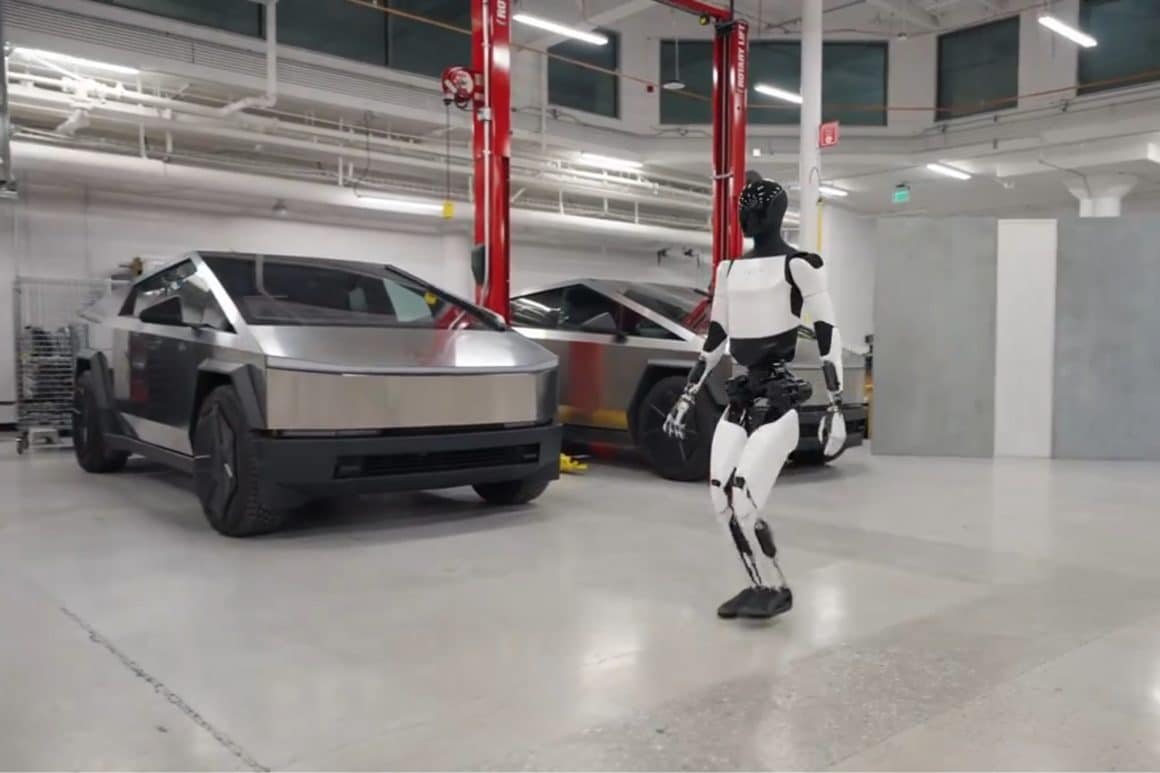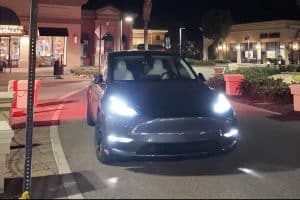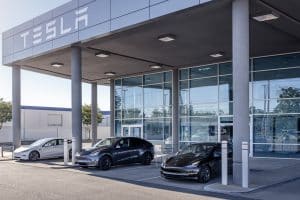- 🚓 A man named Klaus Pflugbeil was arrested in March for allegedly stealing Tesla trade secrets.
- 📄 Pflugbeil worked with Yilong Shao of Ningbo, China, to sell stolen trade secrets from Tesla.
- 🏭 Both men were previously employed by Hibar Systems, a battery manufacturer acquired by Tesla in 2019.
- 🇨🇳 After Hibar’s acquisition, the duo moved to China and attempted to establish their own company.
- 🎭 Pflugbeil was arrested during a meeting with undercover federal agents posing as businessmen.
- ❌ Yilong Shao remains at large, and his whereabouts are currently unknown.
- 🇺🇸 U.S. Attorney Breon Peace emphasized the importance of protecting American intellectual property.
- ⚖️ Pflugbeil pleaded guilty to conspiring to send trade secrets to undercover agents.
- 🚗 Tesla is assumed to be the “Victim Company-1” mentioned in the Department of Justice’s announcement.
- 🌐 Stolen trade secrets were advertised on Google, YouTube, and LinkedIn.
- 📜 Messages revealed Pflugbeil tried to make stolen documents appear original.
- ⛓️ Pflugbeil faces up to 10 years in prison.
In a world where information is power, the recent case of Klaus Pflugbeil’s theft of Tesla trade secrets reveals how crucial it is to safeguard intellectual property. This blog post delves into the details of this case, provides insights into the significance of protecting trade secrets, and explores the broader implications for businesses and individuals.
Understanding the Tesla Trade Secret Theft
Who is Klaus Pflugbeil?
Klaus Pflugbeil, a man who recently made headlines, was arrested in March for allegedly stealing trade secrets from Tesla. Pflugbeil, alongside Yilong Shao, both from Ningbo, China, became infamous for their attempt to profit from Tesla’s proprietary information.
The Connection to Hibar Systems
Both Pflugbeil and Shao were previously employed by Hibar Systems, a Canadian battery manufacturing company. Tesla acquired Hibar Systems in 2019, recognizing its potential and integrating its technology and expertise into Tesla’s operations. This acquisition gave Tesla access to vital manufacturing techniques and proprietary information—information that Pflugbeil and Shao would later attempt to market illegally.
The Undercover Sting Operation
Pflugbeil’s arrest stemmed from a meeting with undercover federal agents disguised as businessmen. During this meeting, the agents successfully gathered evidence of Pflugbeil’s intent to sell the stolen trade secrets.
Yilong Shao, on the other hand, managed to evade capture. His whereabouts remain unknown, making him a fugitive and a continuing threat to intellectual property security.
The Legal Repercussions
The Charges
Faced with overwhelming evidence, Klaus Pflugbeil pleaded guilty to conspiring to sell trade secrets belonging to a leading U.S.-based electric vehicle company—presumed to be Tesla. According to the U.S. Department of Justice, Pflugbeil admitted to attempting to send valuable documents and drawings, stolen from Tesla, to undercover agents.
Statement by U.S. Attorney Breon Peace
U.S. Attorney Breon Peace highlighted the gravity of the situation in a public statement. He emphasized the importance of protecting American intellectual property to safeguard the economy and national security.
The Broader Implications
Impact on Tesla
This case illustrates the vulnerabilities that even leading companies like Tesla face. The theft of trade secrets can jeopardize a company’s competitive edge and financial health. For Tesla, known for its innovative electric vehicle technology, protecting its intellectual property is paramount to maintaining its market position.
Lessons for Other Companies
- Enhanced Security Measures: Companies must invest in robust cybersecurity and monitoring systems to detect and prevent unauthorized access to sensitive information.
- Employee Training: Regular training sessions on data security and confidentiality can help employees understand the risks and their role in safeguarding trade secrets.
- Legal Agreements: Companies should ensure that all employees and contractors sign non-disclosure agreements (NDAs) and are aware of the legal consequences of violating them.
The Role of Technology in Espionage
Modern technology has made it easier than ever to steal and disseminate sensitive information. Pflugbeil and Shao advertised their stolen trade secrets on platforms like Google, YouTube, and LinkedIn, showing just how accessible and widespread such information can become.
The Human Element
It’s important to recognize that the biggest threats often come from within. Insider threats—from disgruntled employees to corporate spies—can be incredibly damaging. Establishing a healthy work environment and creating a sense of loyalty can mitigate some of these risks.
Conclusion
The arrest and guilty plea of Klaus Pflugbeil serve as a stark reminder of the constant threats businesses face regarding intellectual property theft. For Tesla, this case underscores the necessity of rigorous security measures and the importance of prosecuting those who attempt to profit from stolen information. For other companies, it is a cautionary tale, emphasizing the need to vigilantly protect trade secrets.
In the increasingly competitive and technology-driven world we live in, ensuring that your secrets remain just that is not only crucial for success but vital for survival.





